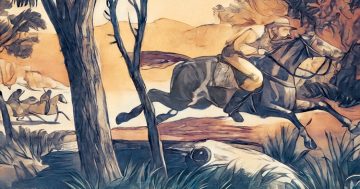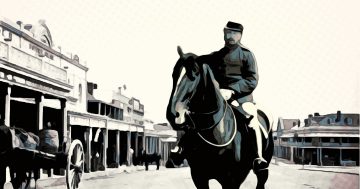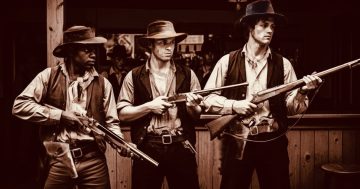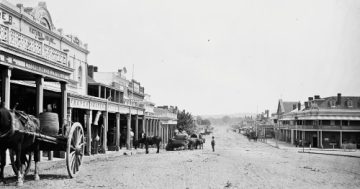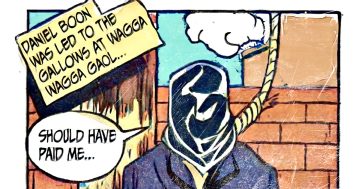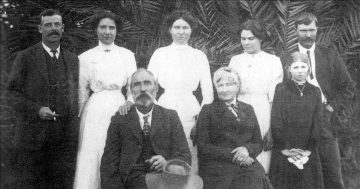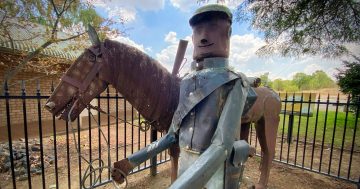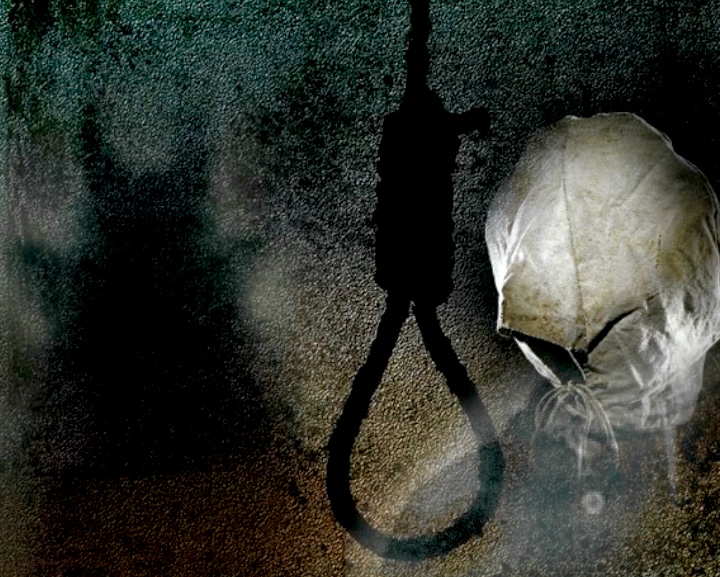
Thomas Reilly accepted his fate and repented of the murder of drover Christian Epple. Photo: Chris Roe.
In 1889 Thomas Reilly was hanged in Wagga for the murder of his employer Christian Epple.
Upon his surrender, the repentant 20-year-old killer confessed that he shot him and robbed him at the prompting of “the devil” and in a “fit of madness” brought on by a mystery woman.
In sentencing, Justice Foster wept for the young man’s fate and declared that he had been urged on “by the instigation of the devil, for it cannot be explained in any other way”.
Thomas Reilly was the first cousin of Ned Kelly and met the same end nine years after the bushranger was hanged in Melbourne.
Reilly described his troubled youth skipping school with disreputable friends and becoming “very wild, like all my mates”.
Working primarily as a drover, Reilly was employed by Christian Epple late in 1889 to move cattle from Bourke to Wodonga.
In his full confession, made to police immediately after his arrest, he described Epple as “a good man” and a “friend”.
“I came through to the end of the trip. The cattle were sold, and we came back to Wagga to spell our horses and prepare for another start back,” he explained.
After being paid, Reilly and two other hands headed into town where they began drinking, and it seems the young drover found himself short of enough cash to buy the affections of a mystery woman.
“It was not through any evil spirit or any ill will between us that tempted me to commit the deed; it was in a fit of madness through a person – a female. Any further particulars on her behalf I shall not relate,” Reilly confessed.
“I had been drinking all the time previous in town trying to drive the temptation before mentioned off my mind, but the more I tried the more it opened out before me and urged me, till I had to give way.”
The lust-maddened drover rode back to the camp on the North Wagga common, stashed a rifle and ammunition and took a nap while he waited for his boss to return.
“I got up with the temptation greater than ever still weighing on my mind. I put on my boots and went up and got the rifle from where it had been standing against a tree, and came back to Mr Epple’s tent, and never looked to see if anybody was looking or not,” he said.
“He looked up when he heard me at the door, and saw me with the rifle in my hands. I shot him in that position. I then took his purse and his watch and chain.”
Immediately overwhelmed with shame and grief, Reilly headed for the bush.
“His figure haunted me the minute I left, and has ever since.”
Reilly next went on a bender, spending the money in hotels and expressing his desire to be shot by pursuing police.
But upon his capture, the 20-year-old did not shy away from the enormity of his crime, detailing to police where the money had been spent so that it could be recovered and returned to Epple’s grieving widow and three young children.
In addition to his full confession, Reilly wrote to Mrs Epple, begging for her forgiveness and expressing his “regret for the injury I have done your husband and the trouble and sorrow which I have caused to fall on you”.
He described his boss as a “good kind man” and a “good friend” and explained how the devil had led him to such “heinous actions”.
Reilly instructed his brother to help the widow in her trouble and promised that, if she allowed it, he would be a “good friend”.
When he fronted court, the young drover pleaded guilty against the advice of the judge and the pair shed tears as he was sentenced to hang.
“I hope and trust in Almighty God for mercy and that I shall meet the man I sent out of this world into the next,” said Reilly.
He was hanged on the morning of 6 November 1889.







